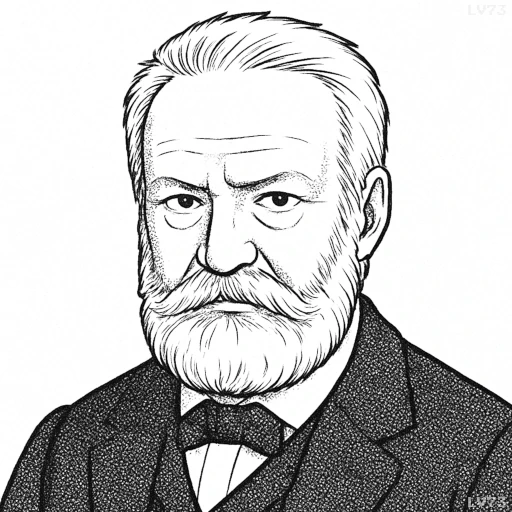“There are no rules, no models; rather, there are no rules other than the general laws of Nature.”

- February 26, 1802 – May 22, 1885
- Born in France
- Author, poet, playwright
table of contents
Quote
“There are no rules, no models; rather, there are no rules other than the general laws of Nature.”
Explanation
Victor Hugo’s quote challenges the idea of fixed, rigid rules in art, life, or creativity. He argues that there are no absolute models or prescribed rules that must be followed, except for the general laws of Nature. Nature, in this context, represents the fundamental principles that govern life—balance, growth, change, and the inherent laws that shape both the natural world and human existence. Hugo is suggesting that true creativity or expression should not be confined by conventional structures or external guidelines, but instead should flow from a deeper understanding of the universal principles that govern the world.
Hugo, a key figure in the Romantic movement, rejected the formal constraints of classical rules, which emphasized strict forms and predictable structures. He believed that true artistic expression should arise organically, influenced more by the artist’s own emotional depth and insight than by pre-established forms. This belief reflects his desire for freedom in creation, whether in writing, art, or social thought, where the only true guideline is the natural order of the universe.
In modern terms, this quote can be interpreted as a call for freedom in the creative process and in life. It reminds us that conventions and preconceived ideas should not limit our potential for innovation and self-expression. Instead of following prescribed formulas, Hugo advocates for embracing the laws of Nature—such as growth, adaptability, and authenticity—as guides in navigating both creative endeavors and life itself. This perspective encourages a more fluid, intuitive approach to problem-solving and artistic expression, one that values individual freedom and the natural flow of creativity.
Would you like to share your impressions or related stories about this quote in the comments section?



